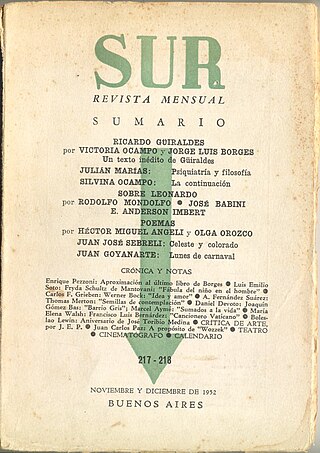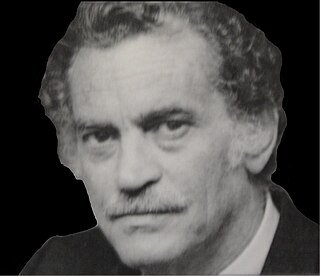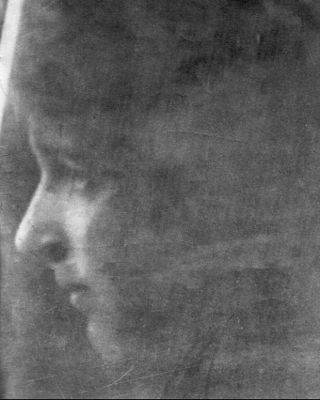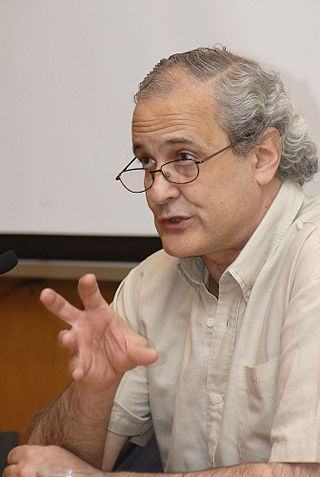
Jorge Francisco Isidoro Luis Borges Acevedo was an Argentine short-story writer, essayist, poet and translator regarded as a key figure in Spanish-language and international literature. His best-known works, Ficciones (transl. Fictions) and El Aleph, published in the 1940s, are collections of short stories exploring motifs such as dreams, labyrinths, chance, infinity, archives, mirrors, fictional writers and mythology. Borges's works have contributed to philosophical literature and the fantasy genre, and have had a major influence on the magic realist movement in 20th century Latin American literature.

Sur was a literary magazine published in Buenos Aires between 1931 and 1992.

Argentine literature, i.e. the set of literary works produced by writers who originated from Argentina, is one of the most prolific, relevant and influential in the whole Spanish speaking world, with renowned writers such as Jorge Luis Borges, Julio Cortázar, Leopoldo Lugones and Ernesto Sábato.

Rodolfo Enrique Fogwill, who normally went only by his surname, Fogwill, was an Argentine short story writer, novelist, and businessman. He was a distant relative of the novelist Charles Langbridge Morgan. He was the author of Malvinas Requiem, one of the first narratives to deal with the Falklands War. Fogwill died on August 21, 2010, from a pulmonary dysfunction.
Martín Fierro was an Argentine literary magazine which appeared from February 1924 to 1927. It was one of the leading avant-garde magazines in the country.
Encounter was a literary magazine founded in 1953 by poet Stephen Spender and journalist Irving Kristol. The magazine ceased publication in 1990 and the operations closed in 1991. Published in the United Kingdom, it was an Anglo-American intellectual and cultural journal, originally associated with the anti-Stalinist left. The magazine received covert funding from the Central Intelligence Agency who, along with MI6, discussed the founding of an "Anglo-American left-of-centre publication" intended to counter the idea of Cold War neutralism. The magazine was rarely critical of American foreign policy and generally shaped its content to support the geopolitical interests of the United States government.

Gaucho literature, also known as gauchesco ("gauchoesque") genre was a literary movement purporting to use the language of the gauchos, comparable to the American cowboy, and reflecting their mentality. Although earlier works have been identified as gauchoesque, the movement particularly thrived from the 1870s to 1920s in Argentina, Uruguay and southern Brazil after which the movement petered out, although some works continued to be written. Gauchoesque works continue to be read and studied as a significant part of Argentine literary history.

María Zambrano Alarcón was a Spanish essayist and philosopher associated with the Generation of '36 movement. Her extensive work between the civic engagement and the poetic reflection started to be recognised in Spain over the last quarter of the 20th century after living many years in exile. She was awarded the Prince of Asturias Award (1981) and the Miguel de Cervantes Prize (1988).

Beatriz Sarlo was an Argentine literary and cultural critic. She was a founding editor of the cultural journal Punto de Vista. She became an Order of Cultural Merit laureate in 2009.
Mundo Nuevo was an influential Spanish-language periodical, being a monthly revista de cultura dedicated to new Latin American literature. Sponsored by the Ford Foundation, the magazine was founded by Emir Rodríguez Monegal in Paris, France, in 1966 and distributed worldwide. Monegal edited it until 1968 and resigned after a five-part installation in the New York Times that revealed the Congress for Cultural Freedom, a source of funding for the magazine, was a front for the CIA. In fact, it was started as a successor of another Spanish language magazine of the Congress, namely Cuadernos. Mundo Nuevo stopped in 1971 after 58 issues.
The Fundación Italia is a cultural institution from Rosario, Argentina. It was created in 1985 to "promote arts, science and technique", by people who boast a "cultural bond with Italy". Although most of the people that work in the organization are Italian Argentines, the institution's activities are far from being restricted to Italian culture, being orientated to widen Rosario's cultural life.

Adrián Gorelik is an architect, urban historian and leading commentator on urban issues in Argentina. His most well-known books are La sombra de la vanguardia: Hannes Meyer en México, 1938-1947, and La grilla y el parque: Espacio público y cultura urbana en Buenos Aires, 1887-1936 (1998). In 2003 he was awarded a Guggenheim Fellowship for a project entitled “The cycle of invention and critique of the ‘Latin American City’.”

Letras Libres is a Spanish-language monthly literary magazine published in Mexico and Spain.
José María Aricó was a prolific essayist, militant activist, and one of the driving forces in creating the New Intellectual Left within Argentina. Strongly influenced by Marx and Marxist thinkers like Antonio Gramsci, Kautsky, and others, Aricó would go on to promote these intellectuals through his own writings, translations and teachings.
Cultural studies is an academic field that explores the dynamics of contemporary culture and its social and historical foundations. Cultural studies researchers investigate how cultural practices relate to wider systems of power associated with, or operating through, social phenomena. These include ideology, class structures, national formations, ethnicity, sexual orientation, gender, and generation. Employing cultural analysis, cultural studies views cultures not as fixed, bounded, stable, and discrete entities, but rather as constantly interacting and changing sets of practices and processes.
Informe Semanal is a weekly Spanish television news magazine broadcast on La 1 of Televisión Española (TVE). Debuting on 31 March 1973, it is the second longest-running national television program in the history of television in Spain, just behind the daily newscast Telediario, on air since 15 September 1957.

Alejandro Pablo Avelluto is a journalist and book editor who held the office of Minister for Culture of Argentina since 10 December 2015 to September 2018, appointed by Mauricio Macri. Between 2014 and 2015 he served as General Coordinator of the Public Media System of the Autonomous City of Buenos Aires.
Nosotros was a cultural magazine published in Buenos Aires, Argentina. It was in circulation between 1907 and 1943. The magazine was a very significant publication in the country and enjoyed high levels of popularity and circulation not only in Argentina but also in other Latin American countries.
La Gaceta Literaria was a bimonthly avant-garde literary, arts and science magazine which appeared in Madrid, Spain, between 1927 and 1932. It is known for its leading contributors and editorial board members.
Nora Domínguez is a full professor of literary theory at the University of Buenos Aires. She was a co-founder of the Instituto Interdisciplinario de Estudios de Género at the University of Buenos Aires, which introduced gender studies as an academic field in 1992. Between 2010 and 2017, she was the director of the institute. Her book De dónde vienen los niños. Maternidad y escritura en la cultura argentina won the Essay Prize from the National Arts Foundation. In 2021, she published El revés del rostro. Figuras de la exterioridad en la cultura argentina, which won the Humanities Prize for the Southern Cone from the Latin American Studies Association in 2022. She is currently directing a six-volume work to compile the series Historia feminista de la literatura argentina. The first volume in the series was released in 2020.










